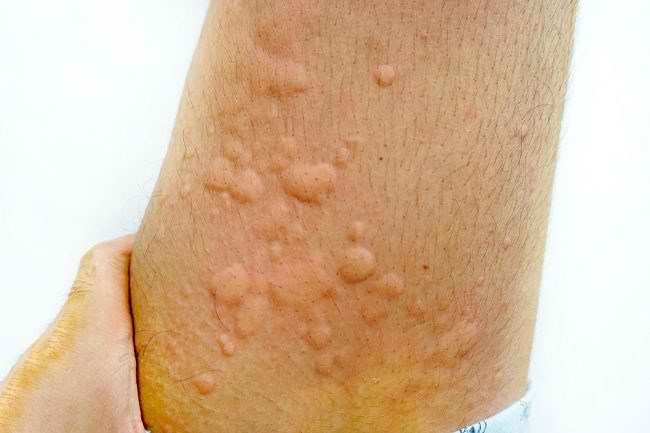Mites are a type of insect that is found all around us, although it is difficult to see. These insects can bite and their bites can cause itching, burning, and skin irritation. If you experience it, there are various ways to treat the symptoms of mite bites that you can do.
Mites are very small insects that can grow and thrive in a variety of environmental conditions. These insects can bite and we are often not aware of them. These mite bites can cause itching and irritation and sometimes cause dry skin.

How to deal with mite bites by type
There are many types of mites and their handling is generally different. The following are some of the most common types of mites and how to treat them:
Sarcoptes scabiei
Sarcoptes scabiei bites and can get under the surface of the skin, causing scabies or scabies. There are several symptoms that can be caused by this type of mite bite, including:
- Itching, especially in the folds of the skin and gets worse at night
- A rash or fluid-filled blister appears
- Reddish and scaly skin
Scabies mite bites can cause severe itching, making the sufferer want to scratch constantly. However, scratching the itchy skin will only leave the skin injured and infected. This can lead to impetigo.
To treat the bite of Sarcoptes scabiei, you can use topical drugs that contain anti-mites, such as permethrin cream, lindane lotion, and crotamiton cream. . In addition, you can also take antihistamine drugs to relieve itching. You can get this type of medicine through a doctor's prescription.
To prevent mite bites from occurring again, wash clothes, sheets, and towels in hot water regularly. Next, leave it in the sun to make sure all the mites die.
Dust mites
Dust mites or house mites generally live and breed in warm and humid environments, such as mattresses, bedding, carpets, curtains, and sofas. These little creatures feed on human and pet skin flakes.
Living or dead dust mites can cause allergic reactions and trigger a recurrence of symptoms in people with asthma. In addition, these mites can also cause symptoms of shortness of breath, chest pain, coughing, and wheezing or wheezing.
Symptoms that arise due to dust mite bites are generally treated with medication. The following are types of drugs that are commonly used to relieve symptoms of dust mite bites:
- Antihistamines, to reduce itching
- Corticosteroids, to relieve inflammation of the skin
- Leukotriene receptor antagonists, to reduce allergic reactions that occur
- Decongestants, to relieve nasal congestion
- Injection of subcutaneous allergy immunotherapy (SCIT)
In order to avoid exposure to dust mites, there are several ways to get rid of dust mites that you can do, including:
- Clean dust or household furniture using a damp cloth and always use a mask when you clean it
- Covering or wrapping bedding, pillows and bolsters with dust-resistant material
- Wash sheets, pillowcases and bolsters, and blankets with hot water and detergent at least once a week
- Use an air conditioner (AC), if possible
Demodex
Demodex is a type of mite that is often found on the hair follicles, skin, and face. These mite bites can cause irritation, redness, and itching and burning on the skin. People who are frequently bitten by Demodex mites are also at a higher risk of experiencing eczema, especially if they have sensitive skin.
There are several treatment methods to treat this type of mite bite, including:
- Using topical creams or lotions, such as benzyl benzoate solution, permethrin cream, sulfur ointment, selenium sulfide, or salicylic acid cream as recommended by your doctor
- Using a mild shampoo, such as baby shampoo, to wash your hair
- Apply tea tree oil to remove mite eggs from skin and hair
- Clean your face 2 times a day with facial cleanser regularly
- Avoid the use of oil-based cleansers and makeup products
- Perform facial skin care regularly to remove dead skin cells
Keeping the house and bedding clean is one of the most important factors in preventing mite bites. If the irritation caused by the tick bite gets worse and doesn't go away after a few weeks, you should see a doctor immediately so that the condition can be treated immediately.
Label : Health
Comments
Post a Comment